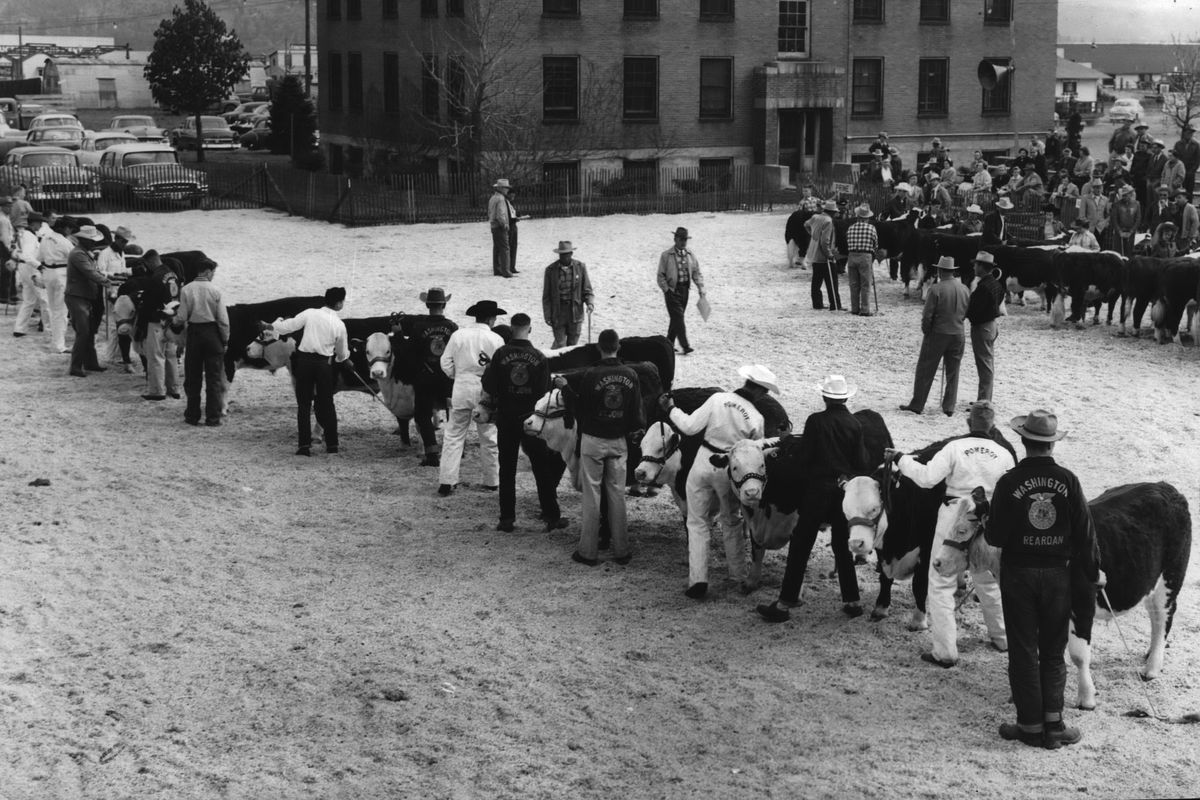Then and Now: Old Union Stockyards

The annual Junior Livestock Show at the Spokane Fair and Expo Center is the legacy of Spokane’s livestock history. Started in 1936, the show honors the top farm animals raised by members of 4-H clubs and the Future Farmers of America. The animals are then sold to help continue the program, which is now operated by a nonprofit group. It’s a reminder of the stockyards that were once nearby.
Brothers W.D. and J.H. Roberts built the Spokane Union Stockyards with unloading ramps and pens for cattle, sheep and hogs, many of which would arrive by train or trucks from outlying areas. It opened around 1915.
Producers and market buyers walked narrow plank walkways atop the fences around the pens to inspect the animals. The business charged fees on each head of livestock, which rarely stayed for more than a day or two.
The new facility was within a mile or two of large slaughterhouses where thousands of animals would be trucked to feed generations of Spokane residents.
Armour and Co. bought the E.H. Stanton meat packing plant at 3300 E. Trent Ave. in 1917, quickly building it into one of Spokane’s largest businesses.
The stockyards company went bankrupt in the 1920s but was reorganized around 1930 under the name Old Union Stockyards. In 1935, they built a neat brick office building at 3810 E. Boone Ave.
The Spokesman-Review reported that, in 1934, some 112,000 cattle were sold there, up from 58,000 in 1933. In 1937, the big meatpacking plants spent approximately $10 million a year on animals at the stockyards.
In the 1950s, the tradition of farmers and buyers making deals along the yards’ fences changed to weekly auctions. Meanwhile, the meat packing businesses migrated to other cities.
Longtime cattle buyer Jim Seabeck took over in 1964. Under the name Stockland Union Stockyards, the business was much reduced from its heyday. Ted Kerst took over in 1981. Facing dwindling volume, Stockland shut down the Spokane location in 1999. The surviving company continues to operate weekly auctions from Davenport, Washington, with most participation via internet video.
Businessman Rocky Rothrock, whose family had managed the stockyards for many years, bought and redeveloped the former Armour plant into an industrial park. Rothrock died in 2017.